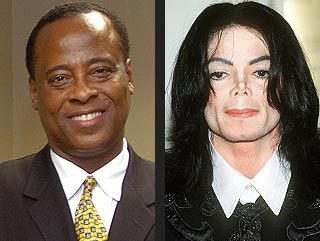What drugs were in Michael Jackson's system at the time of his death?

The L.A. coroner's pending toxicology report – expected to answer that key question any day now – may hold the fate of Dr. Conrad Murray, the singer's personal physician. Murray was with Jackson on the day he died and is the apparent focus of a manslaughter investigation.
According to Los Angeles County Department of Coroner Chief Investigator Craig Harvey, the long
awaited autopsy report will be released within days. "We anticipate releasing it this week," Harvey said July 27. "We still have details to work out."
'In the Dark'
Miranda Sevcik, spokesperson for Murray's attorney Ed Chernoff, says they're "in the dark" as to whether an arrest of Murray is imminent, even as news reports increasingly point to potentially serious trouble for the Houston-based physician.
On Monday, CNN and the Associated Press reported investigators believe Murray was the person who injected Jackson with the powerful anesthesia Propofol the night before the entertainer died. Jackson regularly used the drug to help him sleep, according to media reports.
Murray's rep has declined to comment on whether he had administered Propofol to Jackson. The only two drugs Murray has denied prescribing for Jackson are Demerol and OxyContin. In response to media reports about Murray, his lawyer posted the following statement on his Web site Monday night:
"It's a waste of time responding to all these timed 'leaks' from 'anonymous' sources," Ed Chernoff wrote. "I feel like a horse swatting flies. Everyone needs to take a breath and wait for these long delayed toxicology results. I have no doubt they want to make a case for goodness sakes, its Michael Jackson! But things tend to shake out when all the facts are made known, and I'm sure that will happen here as well."
Another Search?
Authorities have twice interviewed Murray and sought a third session with him, which has not yet been set. They also raided his Houston clinic on July 22, which Murray's camp said came as a surprise. His rep didn't know whether a similar search of the doctor's offices in Las Vegas would occur.
"Obviously investigators are not sharing details with us about their plans, as evidenced by what happened last week," Sevcik says. "Like everyone else, we're awaiting the results of the toxicology tests, and at that point, we'll assess what we need to do."
L.A.-based forensic toxicologist Nachman Brautbar, M.D., who's not involved with the case, says the the toxicology report – an analysis of drugs in a person's system – "plays a prime role in putting the pieces together of why someone died when the initial autopsy rules out any obvious known causes of death." But he said it would be "unsual" for a coroner to rule homicide – a death caused by another person which could include manslaughter – in a drug-related case outside of a hospital or nursing home scenario.
From HUFF POST

